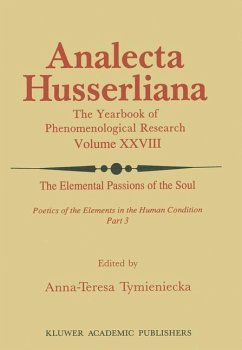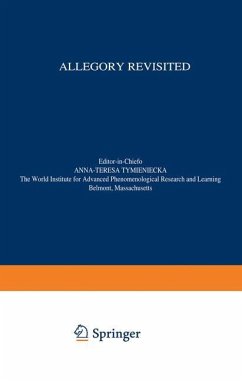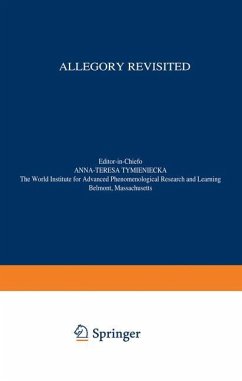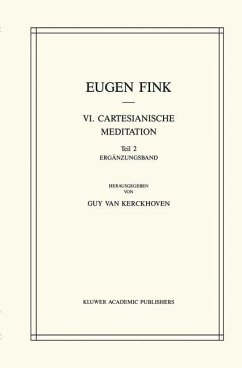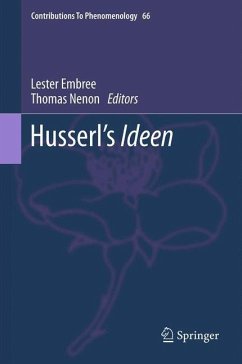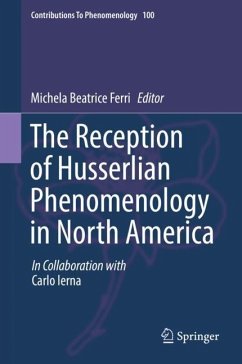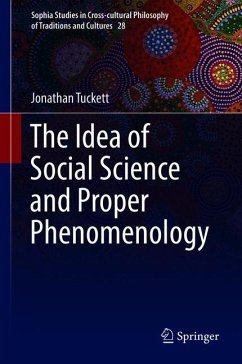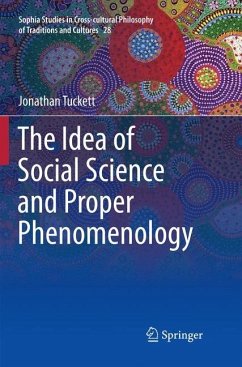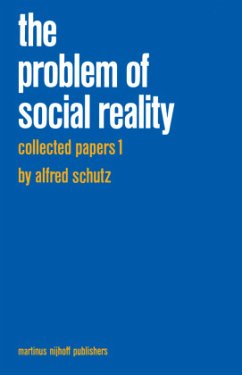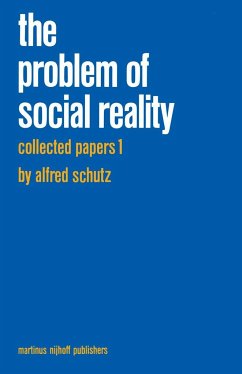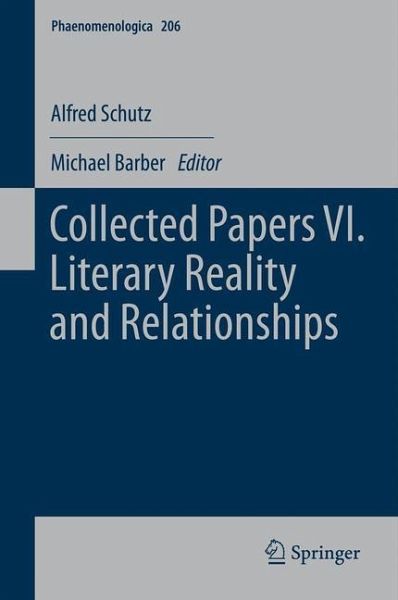
Collected Papers VI. Literary Reality and Relationships
Versandkostenfrei!
Versandfertig in 6-10 Tagen
113,99 €
inkl. MwSt.
Weitere Ausgaben:

PAYBACK Punkte
57 °P sammeln!
The three essays in this volume provide the reader with a picture of Alfred Schutz s understanding of literature and literary relationships. The first essay, Life Forms and Meaning Structures a reprint of a volume of writings from Schutz s Bergson Period ((1924-1928), presents various ideal typically constructed life-forms (e.g., duration, memory, the speaking ego, the I in relation to the Thou). The interpersonal relationship between I and Thou becomes central in Schutz s treatment of the meaning structures of literary art forms insofar as those meaning structures depend upon a relationship b...
The three essays in this volume provide the reader with a picture of Alfred Schutz s understanding of literature and literary relationships. The first essay, Life Forms and Meaning Structures a reprint of a volume of writings from Schutz s Bergson Period ((1924-1928), presents various ideal typically constructed life-forms (e.g., duration, memory, the speaking ego, the I in relation to the Thou). The interpersonal relationship between I and Thou becomes central in Schutz s treatment of the meaning structures of literary art forms insofar as those meaning structures depend upon a relationship between the author and reader in poetry, drama, and novel-writing. This first essay also describes the fundamental nature of human experience, its pluralized realms, the passage of time, perspectival interpretation, action and its impediments all of which concepts make possible an understanding of literature and literary themes. This essay also contains discussions of opera in general, comparisons between Wagner and Mozart s operas, and the relationship between music and language in opera.
The second essay, The Problem of Personality in the Social World makes available previous untranslated manuscripts from 1936 and 1937. This essay offers the reader insights into the unity the social person achieves, temporality, and the role of the body and into the importance of pragmatic relevances, showing thereby how Schutz went beyond his 1932 Phenomenology of the Social World in a pragmatic direction even before he arrived in the United States. This essay also anticipates Schutz s 1945 essay, On Multiple Realities by discussing reality-spheres of working, phantasy, dreams, and theory. These reality-spheres are key for understanding literature, as can be seen in the third essay in this volume, the translation for the first time of two Goethe manuscripts produced by Schutz in 1948. Although the first text, on Johann Wolfgang Goethe s Lehrjahre reveals Schutz actually interpreting a piece of literature, tracing the themes of art and life and fate and freedom through the text, the second, a commentary on Goethe s Wanderjahre, actually presents an inchoate theory of literature.
To defend Goethe s later (1829) version of the Wanderjahre novel, Schutz argues that critics miss the point that readers of literature adopt a specific kind of epoché in which they enter a reality-sphere gtoverned by the logic of the poetic event whose rules are not those of everyday life or theoretical contemplation. Hence critics who dismiss Goethe s later novel as careless because it does not include all the details they think should be included are actually applying the standards of everyday logic to literature. In sum, the essays in this volume bring out the distinctive character of literary reality and the relationships between author and reader, even as the reader will derive from these essays a sense of how Schutz read literature himself.
The second essay, The Problem of Personality in the Social World makes available previous untranslated manuscripts from 1936 and 1937. This essay offers the reader insights into the unity the social person achieves, temporality, and the role of the body and into the importance of pragmatic relevances, showing thereby how Schutz went beyond his 1932 Phenomenology of the Social World in a pragmatic direction even before he arrived in the United States. This essay also anticipates Schutz s 1945 essay, On Multiple Realities by discussing reality-spheres of working, phantasy, dreams, and theory. These reality-spheres are key for understanding literature, as can be seen in the third essay in this volume, the translation for the first time of two Goethe manuscripts produced by Schutz in 1948. Although the first text, on Johann Wolfgang Goethe s Lehrjahre reveals Schutz actually interpreting a piece of literature, tracing the themes of art and life and fate and freedom through the text, the second, a commentary on Goethe s Wanderjahre, actually presents an inchoate theory of literature.
To defend Goethe s later (1829) version of the Wanderjahre novel, Schutz argues that critics miss the point that readers of literature adopt a specific kind of epoché in which they enter a reality-sphere gtoverned by the logic of the poetic event whose rules are not those of everyday life or theoretical contemplation. Hence critics who dismiss Goethe s later novel as careless because it does not include all the details they think should be included are actually applying the standards of everyday logic to literature. In sum, the essays in this volume bring out the distinctive character of literary reality and the relationships between author and reader, even as the reader will derive from these essays a sense of how Schutz read literature himself.




